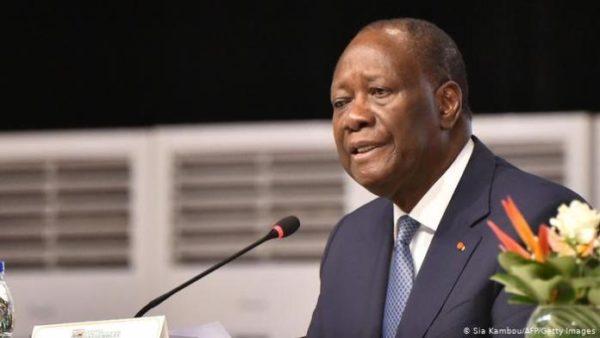Under the leadership of Alassane Ouattara, the country has asserted itself as a key player in Tech in West Africa, symbolized by the Information Technology and Biotechnology Village (Vitib), in Grand -Bassam. A look back at a decade of initiatives in favor of digital emergence.
No, the Ivorian economy is not based only on coffee and cocoa. Since 2011, the country has been stepping up initiatives to enable the Tech sector to become a real lever for development. Admittedly, the target of 15% of GDP in 2020 – against 7% in 2017, was certainly too ambitious, especially against the backdrop of the health crisis. But the Ivory Coast can boast of many advances in the field of ICT. The 2020 GSMA study thus highlights that “in terms of mobile connectivity, the Ivory Coast is the country which has advanced the most in West Africa, with an increase of 9.2 points over three years. The country has seen clear improvements in infrastructure, accessibility and content development. ” And the figures speak for themselves, with the Ivory Coast having 38.8 million mobile subscribers in September 2020 against 25 million five years earlier, or a penetration rate now exceeding 145%. The number of Internet subscribers has also taken off in the meantime: from less than 200,000 in 2011, it rose to 8 million in 2015 … and 12 million last year. More generally, with annual growth exceeding 10%, the ICT market today contributes 9% to GDP, according to ARTCI.
Last December, the Alliance for Affordable Internet, which advocates more ambitious broadband policies and more transparent regulation, applauded the country’s efforts in Internet accessibility. According to this organization, the Ivorian government is illustrated by its involvement in favor of the construction and improvement of intermediate networks, essential for the development of a quality connection and, in the longer term, for the development of a Digital Economy. Thanks to the partnership between Orange and MainOne signed on October 1, 2019, the country was able to benefit in particular from the deployment of a third optical fiber submarine cable, helping to make it “a very high speed haven” and allow it to ” develop new digital services accessible to all, innovative, simple and trustworthy ”, as Mamadou Bamba, CEO of Orange Côte d’Ivoire, emphasized at the time.
Strong measures
Behind these green indicators, various strong measures, starting with the vast ICT development program initiated in 2012, whose main axes included the establishment of a strong regulatory arsenal in order to give the country the means to deploy it. a knowledge economy. Four laws have thus been adopted: the Telecommunications / ICT Code, electronic transactions, the protection of personal data and the fight against cybercrime. In 2012, the country set up a platform to fight cybercrime and has since intensified its cooperation with foreign security services, ratifying the Budapest Convention on Cybercrime of the Council of Europe in March 2019.
To go further in this logic of structuring and securing the digital environment, the country will equip itself with a telecommunications supervision system in order to set up a system to monitor electronic communication flows and fight against fraud. The result: better regulation of this crucial sector, improvement of the quality of its network and the activation of new financial leverage to serve its development.
Dedicated ecosystem and free zone
En plus de se doter en 2012 d’une structure de formation dédiée, l’École Supérieure Africaine des Technologies de l’Information et de la Communication (ESATIC), le pays a déployé un écosystème complet pour favoriser l’émergence de jeunes pousses IT : une école de code, un accélérateur de start-ups doté d’un incubateur et un centre de recherche, qui s’ajoutent aux principaux labs et incubateurs que sont Seedstars, Incub’ivoir, Baby Lab (premier fablab ivoirien, ouvert en septembre 2014) ou Y’ello Startup de MTN.
Mais le jalon majeur de cette dynamique au service du développement des TIC reste sans conteste la zone franche du Vitib, inaugurée en 2014 sur une surface de 624ha à Grand-Bassam moyennant un investissement de 65 millions de dollars. À la clé, des incitations pour les entreprises Tech et Biotech qui s’y installent : exonération fiscale pendant cinq ans, 1% d’impôts à partir de la sixième année… Aujourd’hui, ce site rassemble plus de 40 entreprises de développement d’applications, d’archivage électronique, d’assemblage d’ordinateurs ou encore d’armoires électriques, auxquelles s’ajoutent des sociétés spécialisées dans la formation et trois data centers (Orange, MTN et MainOne). Côté entreprises hébergées, signalons : Afric power, dip Systemes, Universal Telecom, ABS, Semlex Côte d’Ivoire, Ciera, Talentys et Weblogy group… À noter aussi la présence croissante d’usines pharmaceutiques. Celle de Pharmanova a été la première à s’y installer, en mars 2016, suivie par celle d’Africure, en mars 2020. Une présence particulièrement bienvenue en ces temps de Covid, que le gouvernement souhaite encourager en permettant à toute entreprise éligible d’obtenir dans un délai express de 48 heures l’accréditation nécessaire, un local ou un terrain.



